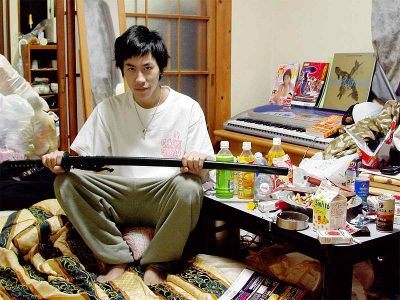Japan Has 541,000 Young Recluses or ‘Hikikomori’ - Dispatch Weekly
September 11, 2016 - Reading time: 3 minutes

According to a government study, an estimated 541,000 15-39 year-olds in Japan remain recluses, choosing to shut themselves in their homes.
Social Recluses or ‘Hikikomori’
The Health, Labor and Welfare Ministry defines hikikomori as people who have stayed at home for at least six months without going to school, work, or going out to interact with others.
The Survey, the Second of its Kind
The most recent survey, that covered 5,000 households with at least one member aged between 15-39, gathered last December, was only the second one ever conducted.
It found that 10.2 percent of 541,000 hikikomori became socially withdrawn between 35-49 years old, double the estimate in the 2010 survey.
34.7 percent became reclusive between 20-24 years old, up roughly 13 percentage points
This was followed by 28.6 percent who have shut themselves away for three-five years.
12.2 percent have been reclusive for five-seven years.
35% Have Remained in their Homes for at Least Seven Years
Compared to previous Cabinet Office survey figures in 2010, which found an estimated 696,000 recluses, or ‘hikikomori’ in Japan, there has been a noticeable decline.
However, the recent study did not include those aged 40 or older, therefore does not depict the full picture.
A trend that emerged in the current survey showed that those who shut themselves away from society, tended to do so for longer, with 35 percent remaining in their homes for at least seven years.

Reasons for Seclusion
The most common triggers for seclusion were truancy and difficulties adjusting to a working environment.
According to data compiled by the Japanese government in 2015, 22% of Japanese work more than 49 hours a week.
This is more than US workers at 16% and French and German workers at 11%.
A country that scored higher than Japan was South Korea at 35%.
The study suggested that many recluses, or hikkiomoris were struggling with interpersonal relationships at school or work.

DW Staff
David Lintott is the Editor-in-Chief, leading our team of talented freelance journalists. He specializes in covering culture, sport, and society. Originally from the decaying seaside town of Eastbourne, he attributes his insightful world-weariness to his roots in this unique setting.




